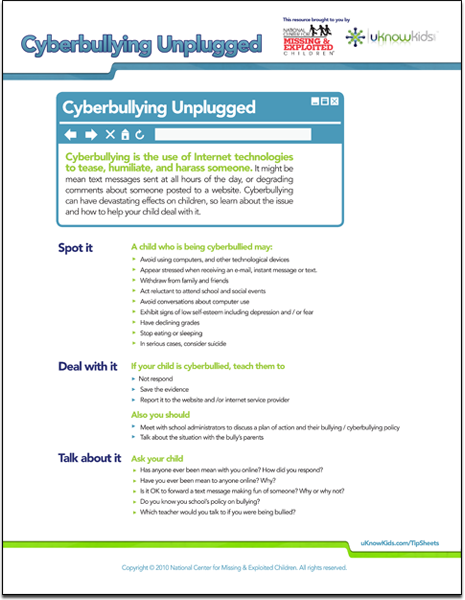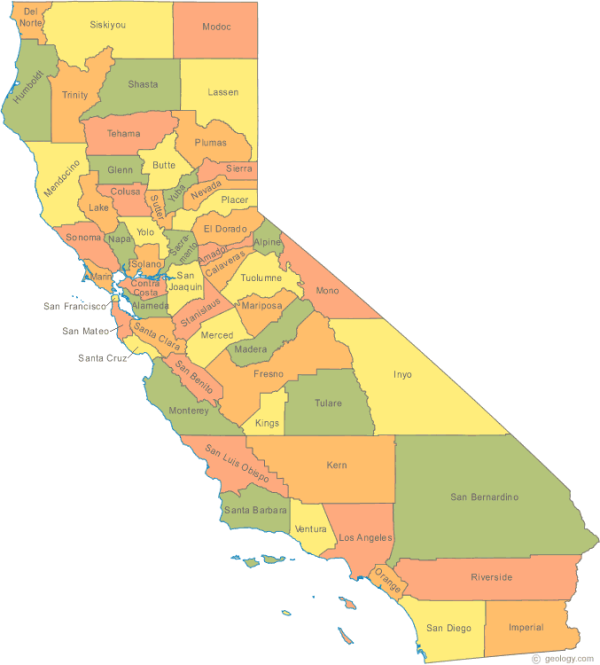At this week's book club meeting, the parents in the room were bemoaning how much our teenagers text. For those of us who are used to using the good old landline phone (bonus points if yours was not cordless), it can almost seem ridiculous. New dangers and scares for parents include sexting, cyberbullying, and everything in between.
One of the moms exclaimed. “My daughter will spend half an hour texting her friends back and forth to coordinate a school project when a 5-minute phone call would clear everything right up!” Our kids just text a lot – some statistics say that the average teen sends and receives over 3,000 texts per month.
Do you feel that your teen is truly texting too much? It can be hard to get perspective on what's normal for a teen, since we didn't grow up with the option of texting anytime, anywhere. Try talking to other parents to get a feel for what's normal for your child and her peers.
Tim Woda

Recent Posts
Are Sexting and Texting Messaging Affecting Our Kids' English?
If you've seen one of your kids' text messages recently, you may have been concerned about what all that text-speak is doing to this generation's spelling, vocabulary, grammar, and general command of the English language. Do you need to?
It's true that text-speak is disconcerting to grammar purists, who shudder at the question “where u at?” or shortening entire phrases like “in my opinion” to “IMO.” Some English teachers also say they see too much informal language and too little structure in their student's writing, which could be attributed to texting and sexting.
However, studies like the one at the University of Toronto suggest that today's generation doesn't really have a problem switching between writing in “textese” to their friends and in more academic language in English class.
Sexting Laws Get Changed in Florida
Even though it's not smart, a lot of teens are sexting. That is, they're sending nude or suggestive pictures of themselves to each other on their cell phones. Though sexting is still a bad idea for a lot of reasons, parents in Florida should know that sexting laws that could affect their kids have changed.
Under the old law, any minor possessing or distributing a sext where the subject is under age 18 could be prosecuted as a sex offender. The new law, however, is much more lenient. What happens now when a teacher or parent finds and reports a sext on a child's phone?
How to Spot a Child Who is a Victim of Cyberbullying
Cyberbullying is the use of Internet technologies to tease, humiliate, and harass someone. It might be mean text messages sent at all hours of the day, or degrading comments about someone posted to a website. Cyberbullying can have devastating effects on children, so read below and learn about the issue and how to help your child deal with it.
Spot it: A child who is being cyberbullied may:
-
Avoid using computers, and other technological devices
-
Appear stressed when receiving an e-mail, instant message or text. Withdraw from family and friends
7 Tips for Creating a Facebook for Kids and Parents "Friendship"
Friending kids on Facebook helps you to stay connected and keep them safe from danger. But many kids feel trepidation about friending their parents.
Many parents who approve of Facebook for kids like to "friend" their kids to do a little parental monitoring. Doing something annoying or embarrassing might mean that you get unfriended, so use these tips to be a good Facebook friend to your child:
-
Pick your battles. If you are going to be Facebook friends with your child, it's pretty much guaranteed that you're not going to like everything they post. If you want to remain friends, don't mention the little infractions (their use of certain 4-letter words, for example) and stick to the big issues where their safety is really at stake (cyberbullying, sexting, dangerous friends, or sharing sensitive information.)
Kids Safety Alert: Teen Driver Kills Baby While Texting at the Wheel
A kids safety nightmare for all parties involved: Nineteen-year-old Kaitlyn Dunaway from California was sentenced this week to five days in jail, 115 days home confinement, and three years probation. Her crime? Running over a mother and her 2-year-old daughter as they crossed a crosswalk while Kaitlyn was texting and driving.
The mother, 42-year-old Ling Murray, was critically injured and spent the next several months in a rehabilitation facility. The 2-year-old daughter, Calli, was killed.
Kids Safety: School Open-Technology Policies, Benefits and Challenges
Kids safety at school is a big deal, and theres no exception when it comes to internet safety, and facebook for kids at school. After a semester of watching the policy in place, here are some general reflections:
The Pros:
-
The entire school is now wireless, which makes showing videos, utilizing web tools and accessing sites, a far simpler task in each classroom. If a student brings up a question that the teacher or class needs further information about—the internet is available at the click of the mouse or tap of a finger.
-
Students are spending less of their creative brain power trying to figure out how to hide the fact that they are texting and teachers are spending less of their valuable prep time filling out detention slips for students who “couldn’t” wait until after school to send a message.
Alberta, Canada: School Secretary Pleads Guilty to Sexting Students
Parents in Black Diamond, Alberta got received some unpleasant news this month. Former Oilfields High School secretary Tanya Marie Cosette pled guilty to sexting two students (one with whom she was having a relationship) in 2009.
As school secretary, Cosette was described as “overly friendly” and routinely sexting both male and female students during and after school hours. She texted regularly with a 16-year-old boy and ended up in a two-month physical relationship with him.
Replacing Facts with Skills in the Classroom: Internet Safety
A student asked me recently: “Why do I need to know when Frankenstein was published? I have a smart phone—I can always find the answer if I need it.”
He was right. And while I can expound easily and at length about how important it is to understand the time period in which an author was writing in order to fully analyze the novel, for most students in American high schools today, my lecture would fall under the “not relevant—tune out” category, and instead of listening to me, they’d spend the next twenty minutes ignoring my painstakingly planned lesson in favor of tweeting and texting their friends from under their desks.
School Bullying and Cyberbullying Outbreak
Nation Wide "No Name-Calling Week": Anti-Cyberbullying
Every year, during the fourth week of January, hundreds of schools across the country participate in No Name-Calling Week to encourage the fight against bullying and cyberbullying. During this week, schools plan activities and events aimed at ending verbal bullying and name-calling.
At Mabel Wilson Elementary School of Cumberland, Maine the national No Name-Calling Week included several activities to highlight positive ways children can help stop bullying.
MTV's A Thin Line Campaign to Stop Cyberbullying
AThinLine.org is MTV's attempt to raise awareness and educate teens on the facts about sexting, cyberbullying, and digital dating abuse. More specifically, it aims to give kids the knowledge of what to do when those issues arise in their real lives. The information given is concise, easy to understand, and not preachy.
Some of the topics covered at A Thin Line:
Sexting. Teens are told to look at the potential consequences of sexting, keep private pictures on their own phones, and not to let themselves be pressured into sexting. And if they receive a sext from somebody else, to hit 'delete' rather than 'forward.'
Kids Safety When Blogging
Tweens and teens often spend hours grooming their blog or Facebook profile until it perfectly reflects their personalities. Facebook for kids is growing in popularity as a form of self expression and communication. In fact, that is today's teenager's preferred form. But is there a way for your kids to do it safely?
Blogging safety actually begins way before your child makes his or her very first post. Here are some key points about teaching blogging safety for parents to remember:
-
Sit down and talk with your child and why he wants a blog and what he hopes to accomplish with it. Discuss rules for what kind of blog he or she will be creating.
Anti-Texting Legislation Causes Kids Safety Stir
Highlighting kids safety laws surrounding texting and driving:
When a state makes it illegal to text while driving, most of us breathe a sigh of relief that the roads are going to be that much safer from now on. But research actually suggests that this may be the opposite of reality, especially for teen drivers.
Two Cyberbullying Victims Commit Suicide in One Month
In spite of October being National Bullying Prevention Month, November saw two very sad and poignant suicides egged on by cyberbullying. 10-year-olds Jasmine McClain and Ashlynn Conner both took their lives just one week apart.
California Let's Cyberbullying Victims to Switch School Districts
Cyberbullying has the potential to hurt a victim in every aspect of life, including school performance. If a kid is being bullied, attempts to improve school performance without addressing the bullying are unsuccessful. One California bill aims to correct that.
Anti-bullying bill AB 1156 expands the definition of bullying to recognize its profound effects on victims. Bullying has a detrimental effect on mental and physical health, and bullied kids are unable to participate in school activities and resources like their peers.
Parents Get Help from The Big Help to Stop Cyberbullying
All kids need lessons in good digital citizenship, but sometimes a parent is the last person kids want to be teaching them. Media like the Big Help is there to support parents in their roles as educators when it comes to Internet safety and helping to stop cyberbullying.
Common Sense Media, a site dedicated to empowering parents with media reviews and advice for their kids, has paired up with children's television station Nickelodeon to bring parents and kids the Big Help.
Proposed CA Law on Social Networking Privacy and Facebook for Kids
Every parent knows that Facebook for kids and children on social networking sites need to vigilantly safeguard their privacy. Apparently lawmakers know that too, and legislators in California are proposing a new bill aimed at protecting the privacy of social networking users.
Initially, the proposed bill only applied to users under 18, but that provision has since been struck and the bill would now apply to users across the board regardless of age. It would require social networking websites to:
A Kids Safe Game for Girls: CookingGames.net
Online gamers used to be mainly teen boys interested in playing first-person shooter and car racing games. But the face of online gaming has changed significantly in recent years. CookingGames.com is one of the many recent start-ups that caters to the preteen girl gamer market. Its tagline? “Why should boys have all the fun!”
The free kids safe games at CookingGames.net are very simple, brightly colored, animated games with titles like Pink Girls, My Cute Puppy, and Justin Bieber Pizza Pasta. The free gaming site started out offering nothing but cooking games (variations of decorating your own pizza, cinnamon roll, birthday cake, and so on,) but has recently begun to offer additional categories like dress up, make up, kissing, decorating, and puzzle and word games.
The site is purportedly a safe site for girls ages 4 to 14, but that doesn't mean parents shouldn't be there to supervise. The kissing games are relatively innocent, but because the main object is to kiss your partner for as long as possible without being caught it is obviously not age-appropriate for some visitors to the site.
Boys, Flirting, and Sexting
Most of the time, when we talk about sexting (the act of sending nude or suggestive photos of yourself via cell phone) we focus on the harm it does to our girls. Of course I’m concerned about the risks of our girls posing for racy photos and distributing them – especially in high school – but what about our boys? Boys sext, too, almost as much as girls do.
Why do boys sext? A lot of reasons: peer pressure, to be funny or gross, or as a form of flirting. In fact, boys seem particularly likely to flirt by sexting.




















